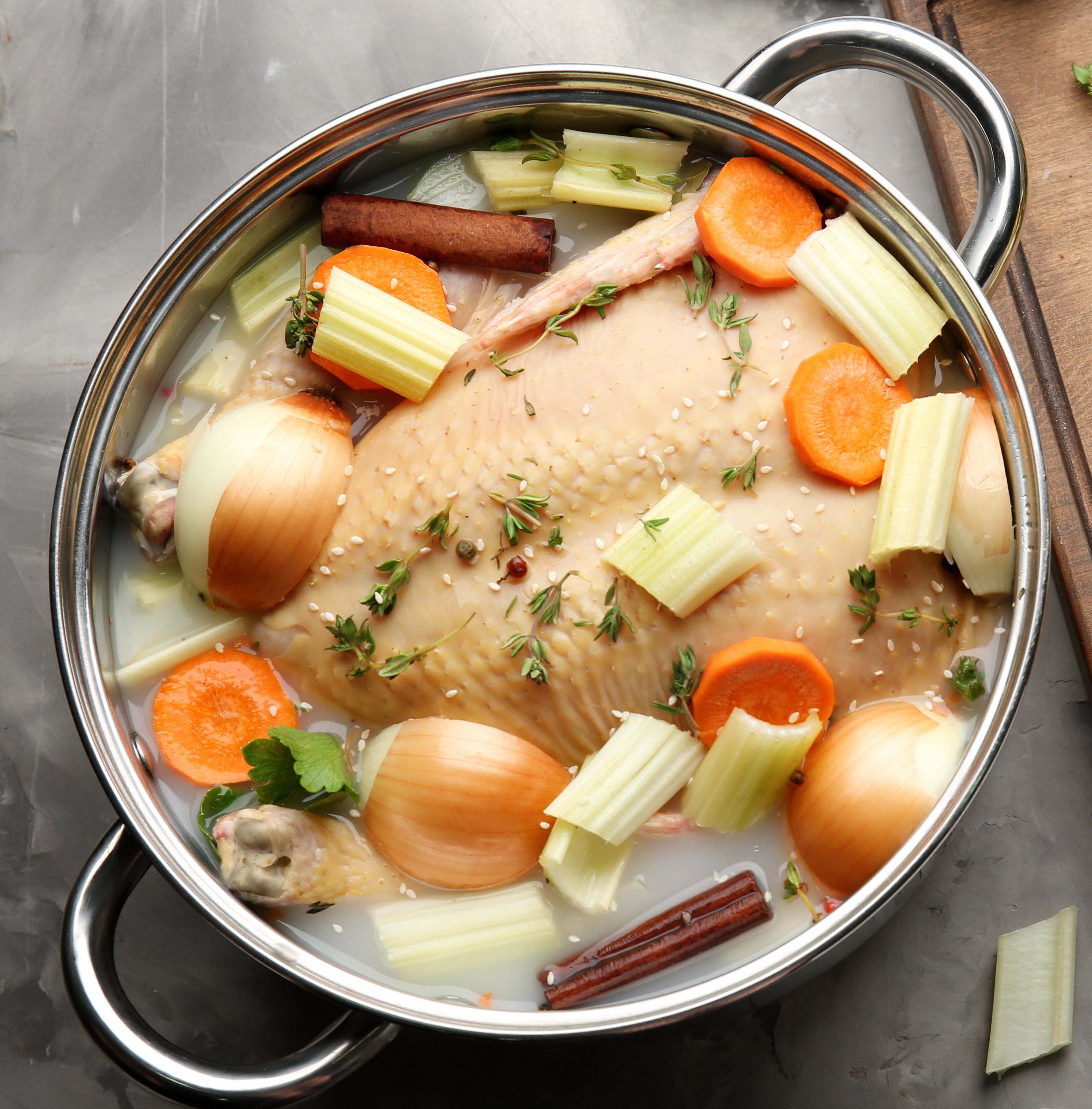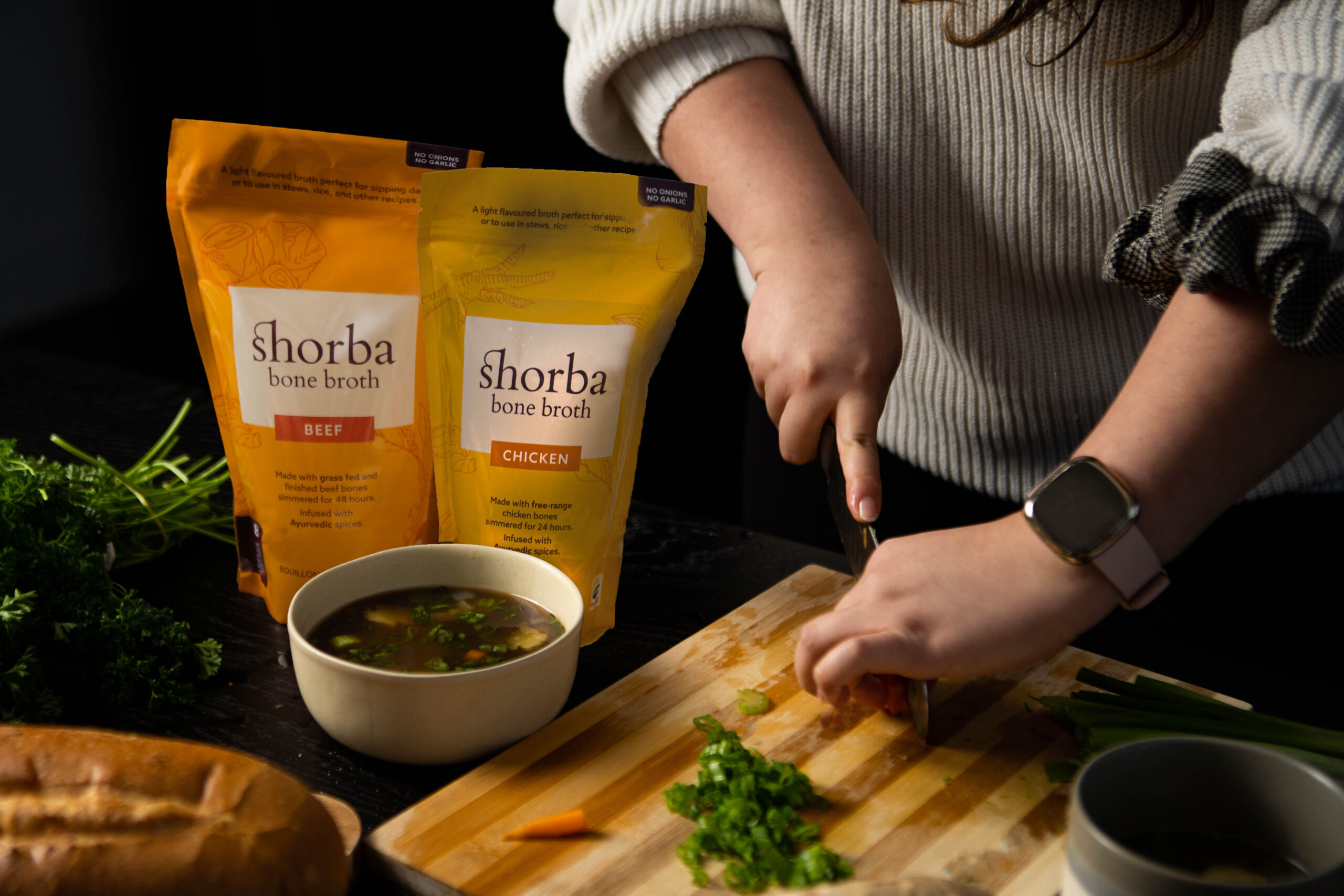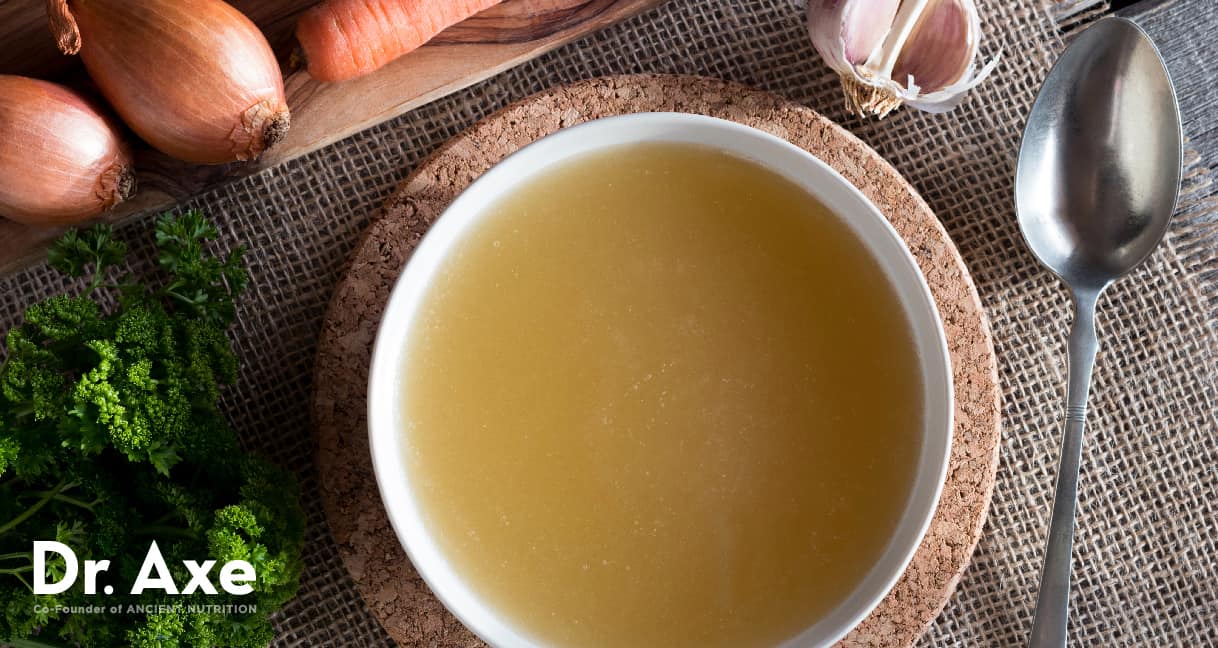Bone broth for pregnancy: Why It Matters
Bone broth for pregnancy: Why It Matters
Blog Article
The aRelevance of Healthy Food: Why Bone Broth Is an Excellent Choice for Infants
Bone broth stands out as a nutrient-dense choice, using vital vitamins and minerals that support growth and advancement. What are the best ways to present bone broth to your little one?
Nutritional Perks of Bone Broth for Infants
When you introduce bone broth to your infant's diet, you're offering a nutrient-dense food that uses various health advantages. Loaded with crucial vitamins and minerals, bone broth consists of calcium, magnesium, and phosphorus, which sustain your baby's expanding bones. It's additionally rich in collagen, assisting in the advancement of healthy skin, joints, and connective tissues.
Moreover, bone broth is an exceptional source of amino acids like glycine and proline, which play a substantial duty in total development and muscle growth. These nutrients aid promote a strong immune system, establishing a solid foundation for your baby's wellness.
In addition, bone broth is easy to digest, making it a mild alternative for your kid. By integrating this wholesome food right into their meals, you're guaranteeing they receive important nutrients necessary for their total health. Go ahead and make bone broth a staple in your baby's diet regimen!
Exactly How Bone Broth Sustains Food Digestion
Bone broth is packed with crucial nutrients that can actually benefit your child's digestion. It advertises gut wellness and assists with nutrient absorption, making it a fantastic addition to their diet regimen. By incorporating bone broth, you're setting the phase for a healthier digestive system.
Nutrient-Rich Structure
One of the most nutrient-rich foods you can introduce to your infant's diet is bone broth, which is packed with vital minerals and amino acids that support healthy and balanced food digestion. Rich in collagen, bone broth assists enhance your infant's gut lining, making it easier for their body to absorb nutrients. By including bone broth right into your infant's meals, you're giving them a wholesome food that supports their digestion system successfully.
Promotes Gut Health
As you introduce bone broth into your infant's diet plan, you'll find it not only nourishes yet also advertises gut wellness effectively. Rich in jelly, bone broth helps relieve the digestive tract, lowering inflammation and supporting a healthy and balanced intestine lining. Additionally, the amino acids discovered in bone broth, such as glycine, help in food digestion and can help stop usual tummy difficulties.
Aids Nutrient Absorption
Introducing bone broth not just supports intestine health and wellness but likewise plays a significant duty in helping nutrient absorption. When you provide your baby bone broth, you're supplying an abundant source of minerals and amino acids that boost their digestive system processes. The jelly in bone broth helps to calm the gut lining, enhancing its ability to take in essential nutrients.
Enhancing the Body Immune System With Bone Broth

In addition, bone broth consists of glycosaminoglycans, like glucosamine, that can improve the immune system's ability to function successfully. This suggests it not just aids in developing defenses however also help in healing from health problems. By integrating bone broth into your child's diet plan, you're offering a natural resource of nutrition that promotes health. Think about making bone broth a staple in your infant's dishes, as it can play an important function in their immune health and advancement.
Easy Ways to Include Bone Broth Into Baby's Diet regimen
Integrating bone broth right into your infant's diet regimen can be easy and rewarding. Begin by mixing a percentage of bone broth into pureed veggies or fruits. This includes flavor and nutrients without frustrating your child. You can additionally use bone broth as a base for soups or stews that you plan for the household, ensuring your child gets a preference of scrumptious, healthy dishes.
If your child delights in grains, think about cooking rice or quinoa in bone broth rather of water for additional nutrients. These approaches will certainly aid your child enjoy the advantages of bone broth easily!
Homemade vs. Store-Bought Bone Broth: What to Pick
Which is much better for your infant: homemade or store-bought bone broth? Self-made bone broth offers you full control over the active ingredients.
On the various other hand, store-bought options are convenient and conserve you time. Nonetheless, they usually have chemicals and may not match the deepness of taste and nutrition you get from homemade broth. If you opt for store-bought, try to find brand names that are organic and free from ingredients.
Eventually, if you have the time and resources, homemade bone broth is the superior choice for your child's health and wellness. If you're short promptly, select a top quality store-bought choice as a backup.
Age-Appropriate Bone Broth Serving Recommendations
As your child grows, it's crucial to customize bone broth serving tips to their developmental stage. For babies around 6 months, start with a few does of watered down bone broth (where to get bone broth).
Once your infant gets to around 8 months, you can serve it warm in a sippy cup or include it to soft foods like purees. By the time your youngster is around a year old, think about using bone broth as a standalone beverage or mixing it into soups and stews. Just see their website to it to maintain the broth reduced in salt. Always check for any reactions, and consult your doctor if you have problems about presenting brand-new foods. Enjoy this healthy enhancement to your child's diet regimen!
Other Healthy Foods to Combine With Bone Broth for Babies
When you're wanting to enhance the nutritional value of bone broth for your baby, take into consideration combining it with nutrient-dense veggies like carrots and spinach. Entire grain alternatives, such as quinoa or brownish rice, can additionally include structure and fiber. In addition, including healthy and balanced protein resources like shredded chicken or lentils will round out the meal nicely.

Nutrient-Dense Veggies
Nutrient-dense veggies are an amazing addition to bone broth for infants, boosting both taste and nutrition. Incorporating veggies like carrots, spinach, and sweet potatoes can enhance the nutrient material of your broth. Carrots offer beta-carotene for healthy vision, while spinach is loaded with iron and calcium, vital for growth. Pleasant potatoes include natural sweet taste and are rich in fiber, aiding food digestion.
You can quickly blend these veggies into the broth or offer them as soft, cooked pieces along with it. This not only presents new tastes but additionally motivates your little one to take pleasure in a variety of nutrients. By coupling nutrient-dense vegetables with bone broth, you're laying the structure for a healthy diet regimen right from the beginning.
Entire Grain Options

Healthy Healthy Protein Resources
Bone broth pairs incredibly with various healthy and balanced protein resources, even more boosting your infant's diet regimen. Eggs, when presented securely, are one more great selection; they're versatile and loaded with nutrients. By incorporating these healthy read this article protein sources with bone broth, you're giving your baby a well balanced, beneficial meal that sustains their growth and growth.
Frequently Asked Concerns
Can Bone Broth Reason Allergies in Newborns?
Yes, bone broth can create allergic responses in babies, especially if they're sensitive to particular ingredients. Always consult your doctor prior to introducing new foods and screen for any kind of signs of allergies after feeding.
Exactly How Should Bone Broth Be Saved for Infants?
You ought to keep bone broth in impermeable containers, either in the refrigerator for up to a week or in the fridge freezer for approximately 3 months. where to get bone broth. Constantly thaw it properly before serving to your baby
Is It Safe to Give Bone Broth to Premature Infants?
It's necessary to consult your doctor prior to presenting bone broth to early babies. They'll analyze your baby's specific health needs and guarantee it's safe, considering their distinct nutritional demands and developmental stage. Always prioritize expert guidance.
What Are the Signs of Intolerance to Bone Broth in Babies?
When introducing bone broth, watch for signs like fussiness, breakout, diarrhea, or throwing up. If your child reveals any one of these responses, it's finest to speak with a pediatrician before continuing to offer it.
Can Bone Broth Be Used as a Dish Substitute for Infants?
No, you shouldn't use bone broth as a dish replacement for babies. It does not have necessary nutrients needed for their growth. Instead, incorporate it into their diet alongside well balanced dishes for added nourishment and taste.
Report this page